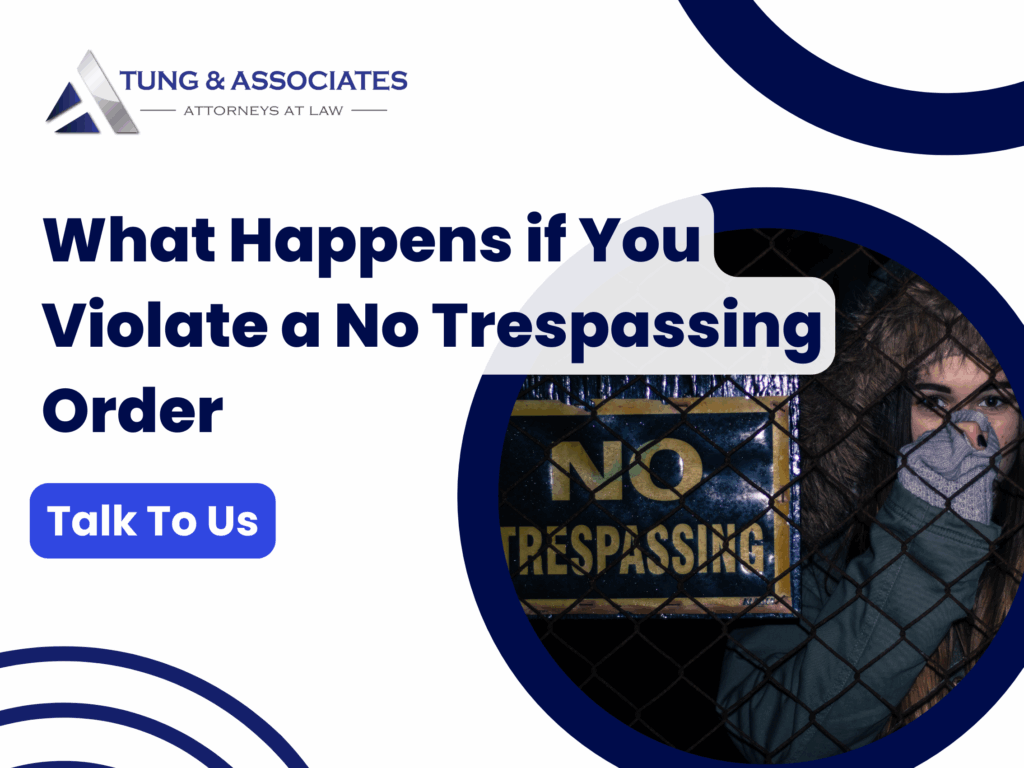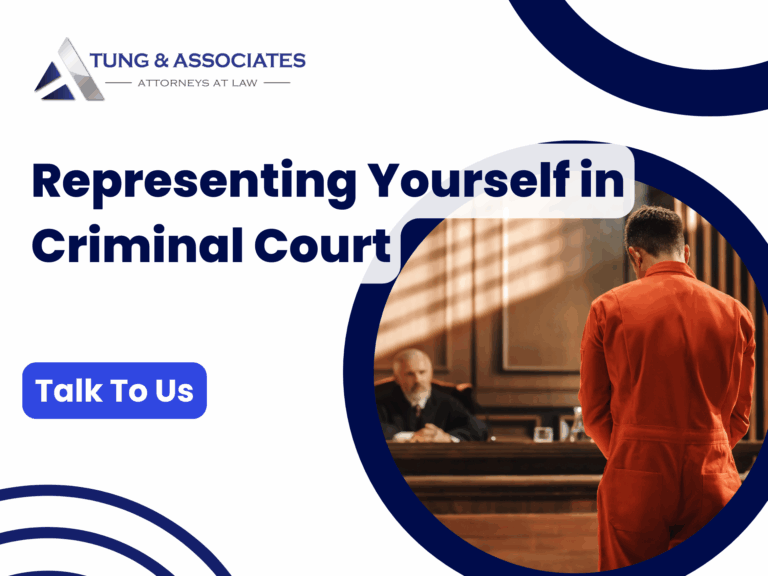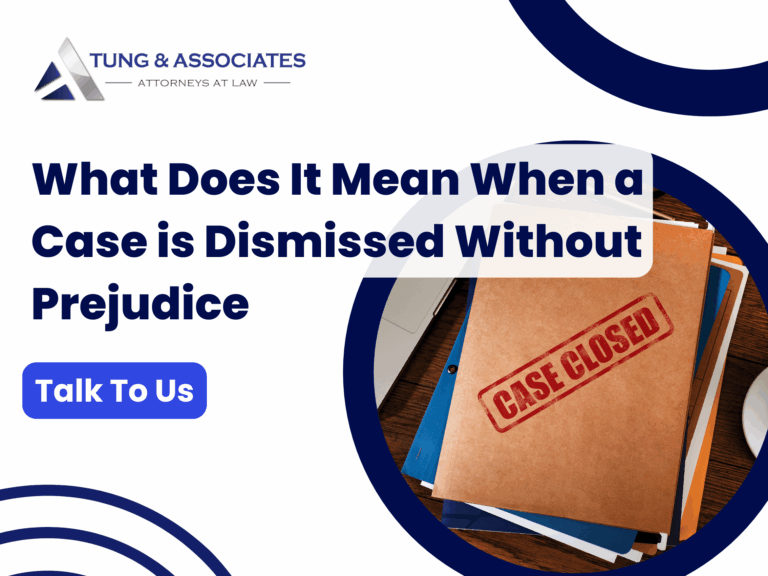Violating a no trespassing order can quickly turn into a criminal matter that puts your freedom and record at risk. If you are facing charges in Pasadena or the greater Los Angeles County area, you need an attorney who knows how to navigate these cases with both skill and compassion.
At Tung & Associates, I take on these cases personally. As a Pasadena criminal defense attorney, I understand that good people sometimes make mistakes or find themselves accused of things they did not intend to do. My role is to protect your rights, explain the legal process clearly, and fight for the best possible outcome.
Why choose Antony Tung for trespassing defense?
Attorney Antony Tung has dedicated his career to representing people accused of crimes in Pasadena and throughout Los Angeles County. Because our office is located in downtown Pasadena on East Colorado Boulevard, he is familiar with how the Pasadena Police Department investigates trespassing complaints, and he knows the tendencies of the nearby courthouses where these cases are heard. That local knowledge is critical when negotiating with prosecutors or challenging weak evidence.
Clients often choose our firm because of our compassionate approach. We know that being accused of trespassing feels overwhelming. You may be worried about jail, fines, or a mark on your record. Antony Tung’s job is to guide you through the process step by step, keeping you informed while building a strong defense strategy.
What types of trespassing cases do we handle?
The attorneys at Tung & Associates regularly defend against all types of trespassing charges, including:
- First-time misdemeanor trespass after someone returns to a property they were told to avoid.
- Aggravated trespass where prosecutors allege the person entered property with intent to harass or threaten.
- Trespass tied to restraining orders or probation conditions, where violating the order can trigger additional penalties.
- Retail bans and commercial property exclusions, such as Walmart or mall no-trespass letters.
- Uncommon scenarios, including sports stadium bans, casino self-exclusion violations, campus or school bans, and cases where someone is accused of trespassing on their own former property after eviction or a protective order.
These situations may sound very different, but the common thread is that the law treats them all seriously. Even when no physical harm occurs, prosecutors argue that property rights must be respected. That is why having a defense attorney who understands the nuances is so important.
How do we approach defense?
When you come to me after being cited or arrested, the first thing I do is listen. Every case has its own context, maybe you never saw the signs, maybe you believed you had permission, or maybe you were just trying to retrieve your belongings. My responsibility is to uncover those details and present them in a way that protects you from the harshest consequences.
Depending on the facts, I may challenge whether proper notice was given, whether the order was legally valid, or whether the evidence really proves you were trespassing. In some cases, I can negotiate for reduced penalties, probation instead of jail, or even dismissal of the charges.
What Is a “No Trespassing” Order?
A no trespassing order is a legal notice that prohibits someone from entering or remaining on specific property. It can be issued in different ways depending on the situation, but the purpose is always the same: to give clear notice that you no longer have permission to be there. Once you’ve been notified, ignoring it can quickly lead to arrest and criminal charges.
Who can issue a no trespassing order?
Property owners, businesses, law enforcement, and courts all have authority in different contexts.
Private Property Owners: A homeowner, landlord, or business can issue a written or verbal warning that someone is no longer welcome. For example, many retail chains issue trespass letters after a shoplifting incident or a fight on the premises. In one Maryland case, a woman was banned for five years from a Walmart after a dispute returning within that period would mean automatic arrest for trespassing.
Police or Court Orders: In some cases, no trespass directives are issued by police or as part of a court proceeding. If a person is arrested for disorderly conduct at a park, local law enforcement may formally warn them not to return. Courts may also include “stay-away” conditions in restraining orders or probation agreements, which function as no trespass orders.
Why does the form of the order matter?
The way the order is issued affects how it is enforced. A store’s private letter may be filed with local police so officers know to arrest you if you show up again. A court-issued restraining order has even stronger consequences: violating it is both trespassing and contempt of court, which can carry separate penalties. In California, restraining order violations under Penal Code §273.6 can lead to up to one year in jail for a first offense.
What counts as “notice”?
The law requires that you be put on notice before you can be charged. Notice can take different forms:
- A written letter served directly to you.
- A verbal warning given by the owner or police.
- Clearly posted signs, such as “No Trespassing” or “Do Not Enter.”
If you are aware or reasonably should be aware that you’re not allowed on the property, then you risk arrest if you go there. Courts look at whether a reasonable person would have known they were barred. Bright, conspicuous signs or prior written warnings are very difficult to ignore.
Is Violating a No Trespassing Order a Crime in California?
Violating a no trespassing order is considered a criminal act under California law. The key statute is California Penal Code §602, which makes it illegal to enter or remain on property without permission once you’ve been told to stay away.
It becomes a crime the moment you knowingly enter or stay on property where you’ve been warned not to go. That warning could be a court order, a police-issued notice, a letter from a business, or even a posted sign. The law doesn’t require repeated warnings; a single valid notice is enough.
What types of charges are possible?
- Misdemeanor Trespass: This is the most common charge, typically filed when someone ignores a private property owner’s ban or re-enters a business after being told to stay away.
- Aggravated Trespass: If prosecutors claim you entered property with the intent to harass, intimidate, or commit another crime, the charge can be more serious. In California, aggravated trespass can be charged as a felony.
- Restraining Order Violations: If the no trespassing rule comes from a court restraining order, then violating it can bring separate charges beyond trespass, often carrying harsher penalties.
The law views trespass as more than a property issue. It’s about protecting safety, preventing conflict, and respecting legal orders. That’s why Pasadena police and Los Angeles County prosecutors treat trespass cases as criminal matters rather than civil disputes. Even if no property damage occurs, the act of ignoring an order undermines the property owner’s rights and the court’s authority.
What Are the Penalties for Violating a No Trespass Order in California?
The penalties for violating a no trespass order in California can range from fines to jail time, depending on the facts of the case. Even a first offense can carry significant consequences.
Most trespassing cases are charged as misdemeanors. If convicted, you face:
- Up to 6 months in county jail
- A fine of up to $1,000
- Possible probation with conditions like community service or restitution
Judges in Pasadena courts sometimes reduce jail time in favor of probation, but the possibility of jail always exists.
The consequences become more serious if the trespass involves threats, intent to commit another crime, or repeated violations:
- Aggravated trespass is a “wobbler” offense, meaning prosecutors can charge it as either a misdemeanor or felony.
- As a felony, penalties can include up to 3 years in state prison.
- A second trespass conviction within two years can carry up to 1 year in jail and a $2,000 fine.
How do restraining order violations differ?
If the no trespass order is part of a court restraining order, violating it has additional penalties. Under Penal Code §273.6, a first offense can mean up to 1 year in jail, and repeated or injury-causing violations can rise to the felony level. Courts treat this more harshly because it’s seen as defying a judge’s direct order, not just a property owner’s request.
Why are these penalties so strict?
California law is designed to protect both property rights and public safety. Authorities want to prevent conflicts from escalating whether between neighbors, ex-partners, or customers and businesses. That’s why penalties increase sharply if violence, intimidation, or repeat behavior is involved.
Where Can You Get Legal Help for Trespassing Charges in Pasadena?
Being accused of violating a no trespass order is stressful and confusing. You may be worried about fines, jail time, or a criminal record that follows you for years. The good news is you don’t have to go through it alone. Having a skilled defense attorney by your side can make a critical difference in how your case is resolved.
At Tung & Associates, I focus on protecting people facing criminal charges here in Pasadena and throughout Los Angeles County. I understand how these cases are prosecuted locally, and I know how to challenge weak evidence, negotiate with prosecutors, and push for reduced or dismissed charges when possible. My goal is always to help clients move forward without letting one mistake or misunderstanding define their future.
I also approach each case with compassion. I know that behind every arrest there’s a person with a story and often, circumstances that deserve to be heard. When we work together, I make sure you feel supported, informed, and defended at every step of the process.
If you or a loved one is facing charges for violating a no trespass order, now is the time to act. Call Tung & Associates today at (626) 416-4668 or visit my office at 790 East Colorado Blvd, 9th Floor, Pasadena, CA 91101 for a confidential consultation. Let’s talk about your situation, your options, and the best way forward.
Don’t wait until things get worse take the first step toward protecting your future today.





